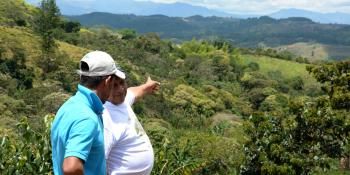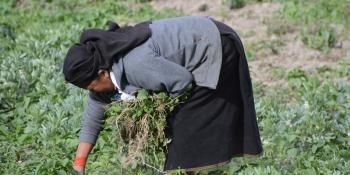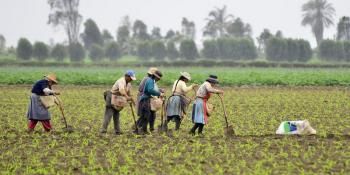It’s time to tell our story
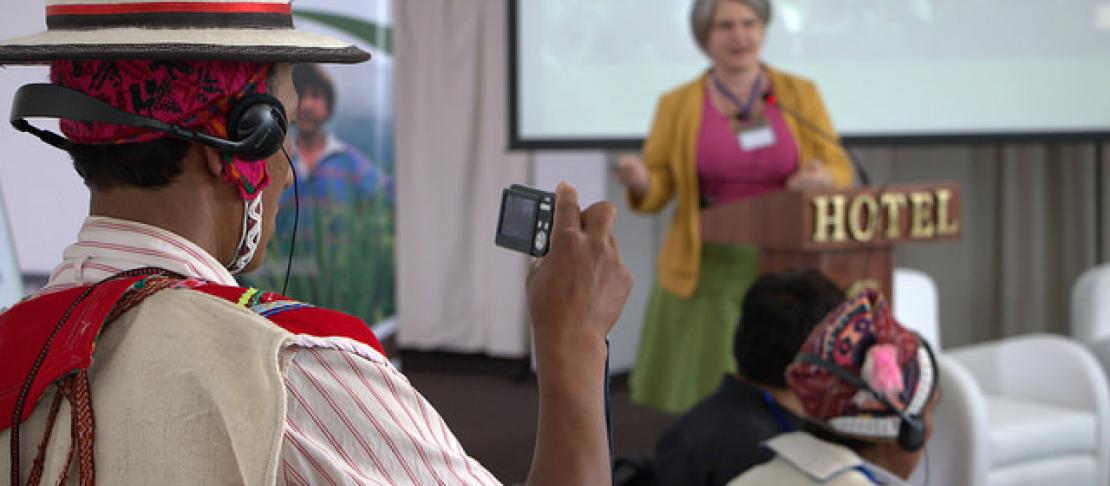
Sharing stories, experiences, problems we are facing and solutions we might have. That was the main lead of the COP20 side event 'Farmers, Agriculture and the UNFCCC'
Doing a quick poll, it turned out that participants from North America, Central America and Caribbean, South America, Europe, Africa and Asia were present, plus a number of youth representatives.
The event, organized by the CGIAR Research Program on Climate Change Agriculture and Food Security (CCAFS) and the World Farmers Organization (WFO), aimed to bring together different constituencies and various representatives of different parts of the world, to exchange ideas and learn from each other. It started with a a briefing on the role of agriculture in the climate change negotiations, in history as well as during the current COP20.
Read: 10 things you need to know about agriculture at December's UN Climate Talks in Lima, Peru
This introduction was followed with speeches by George Wamukoya (Common Market for Eastern and Southern Africa) and James Kinyangi (CCAFS East Africa), who appealed to participants to get engaged as much as possible in the climate change policy process. George said:
We know farmers have many stories about the way they adapt, and we know there is a political world that can provide support in the form of climate information, information on weather forecasting. We just need to make sure that all information is shared, listened to and taken into account, and that is why we need to make use of this venue to make sure agriculture will be included."
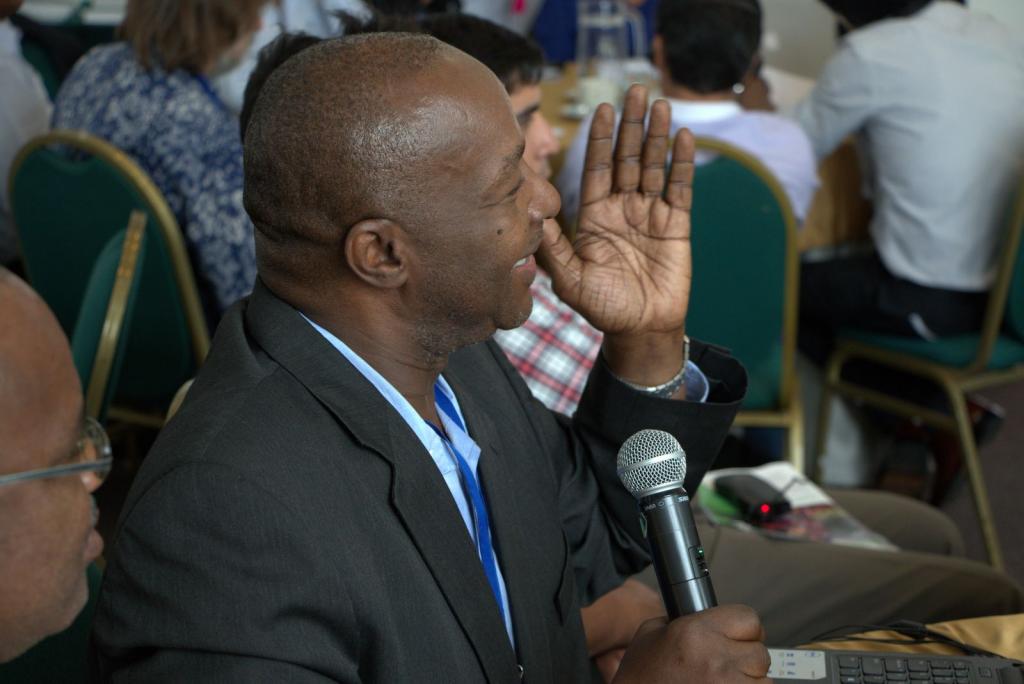
many motivating and energizing discussions were held. photo: gian betancourt (ciat)
The reason why is simple: there is not a single country in the world that does not care about agriculture, and it is widely acknowledged that land use is a big opportunity. But right now, since agriculture is not included in the negotiations, a lot of continents are left out. The tendency is that whenever agriculture is mentioned, some specific countries are leading these talks.
In a way, agriculture contributes to the greenhouse effect through the production of gasses of livestock. James said:
This way science tells us that we are partly responsible, but science also tells us we do this to secure our livelihoods. But most importantly, science tells us we also have an opportunity, through agriculture, to reduce greenhouse emissions."
George added:
We need to focus on how we can produce more and better, without adding to the emissions. Tell your governments that you would like to work with them, that you would like to know what and when to produce, to plant trees in your farms, to work together with your governments, to have access to credits, to support for better land management, water and all of this to farm better, and at a lower carbon footprint. This way, when your government comes to these negotiations, they have all the information from your side they need. There needs to be evidence: farmers, you need to tell us what the main barriers you are facing are.”
James and George, who have been deeply involved in negotiations on behalf of African governments, called for reactions from the farmer organizations, explaining:
We should be leading the way, not following and we shouldn’t be begging for space, they should be begging us to join."
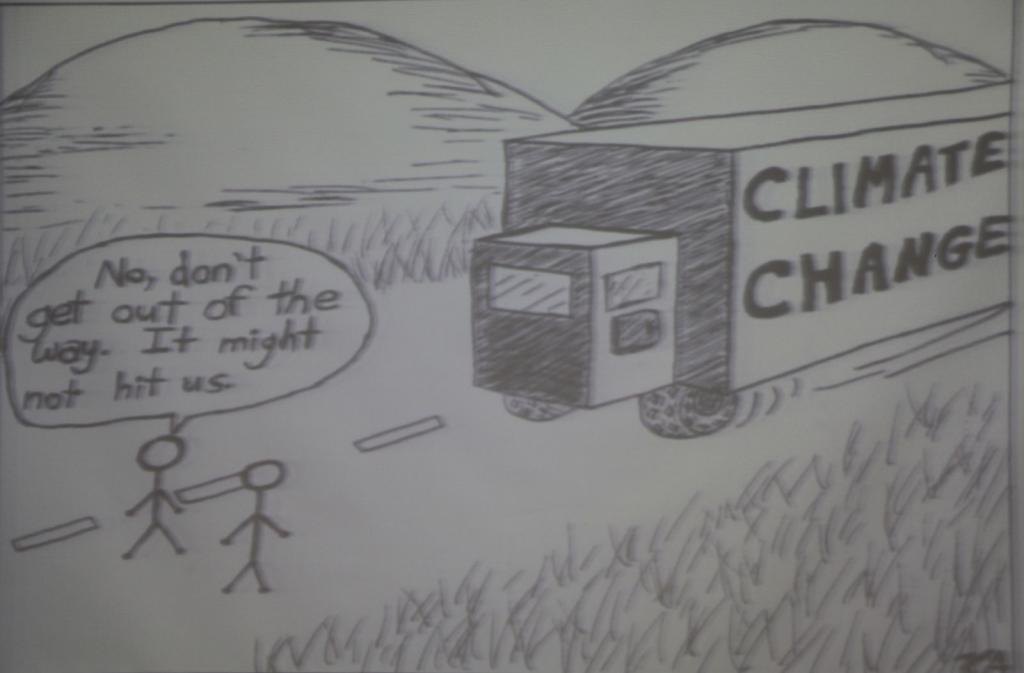 traditional farmers contribute less, but suffer more from the consequences of climate change. photo: gian betancourt (CIAT)
traditional farmers contribute less, but suffer more from the consequences of climate change. photo: gian betancourt (CIAT)
A Peruvian farmer made notice of the fact that he knows of many farmers that use traditional practices, and therefore contribute hardly anything to global greenhouse gas emissions.
Before we had bio indicators: the behavior of some animals or plants showed us when to sow, plant, seed, etc. But now, due to climate change, the animals and plants don’t know what to answer anymore, and we don’t know what to do: we cannot trust our bio indicators anymore!"
We are convinced, as small farmers, that we are not contributing to the global warming since we use hand-agriculture and work in harmony with the climate. However, we see the climate changing and we are very much affected. We feel especially affected because we are small farmers; we have small productive systems that cannot benefit like the bigger companies can. So the least thing that could be done is for us to be included in the climate change negotiations. It would only be fair for governments to include farmers into the negotiations, because what is happening now is that other people are deciding for us what to do."
The big questions, however, is what to do from now up to 2020, and how to reduce the need for mitigation and adaptation. Manyewu Mutamba from the Southern African Confederation of Farmers Unions (SACAU) was impressed.
Today is the biggest gathering I have seen of farmers from different parts of the world, to get involved in the negotiations. We have limited ways of influencing the negotiations directly, but getting together this way, and forming alliances is a great way to start."
The youth representatives mentioned that often they feel left out by their governments: as youth, they notice the lack of governments:
Often, young people are not seen as critical stakeholders in the negotiations, and are only brought in when the decisions are already made."
Therefore they proposed the following three things:
- Provision of education, training, social welfare that is their right that they deserve
- Access to financial and technological resources. It is important now with CC how to use CSA in the investment of rural youth
- Securing land rights for the youth to avoid questions for investment and legalization of contribution
This way, youth will feel connected to their lands, and feel proud and will be able to battle the rural youth migration. In general, both farmer and youth groups felt content about the meeting.
It feels good to be listened to, and to have the chance to say what we want to say’,
mentioned one of the African farmers. This was exactly the point of this seminar: to recognize the role the traditional small holder farmer plays in the climate change, the role he or she plays in the climate change debate and negotiations and the role they play in finding the solution. All agreed that the involvement of agriculture in the climate change negotiations is essential for a potential success, and that no agricultural debate can be held without the involvement of the actual farmers.
For more information see:
Read: The elephant in the room - Agriculture at the UNFCCC negotiations blog
Look: take a look at the photos from the event
Watch: click to see our video showcasing the voices of farmers
Manon Koningstein is a research associate and communications specialist at the International Centre for Tropical Agriculture (CIAT) and is based in Cali, Colombia.
CCAFS and partners were at the UN Climate Talks in Lima in December 2014 to share experiences and insights on agriculture and food security. Find out more and join the conversation online by following our COP20 blog, @cgiarclimate on twitter, on Facebook and Google+.

